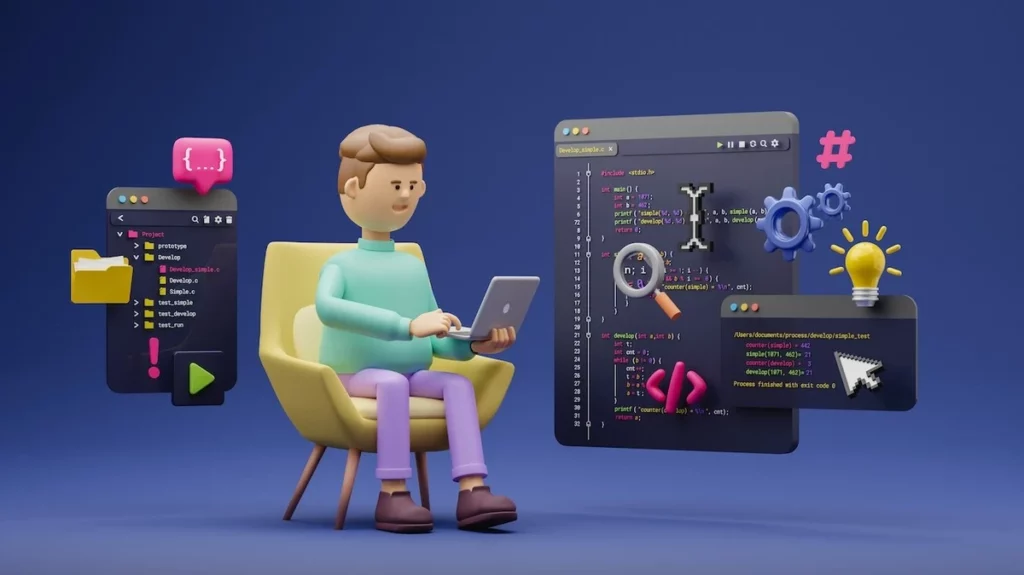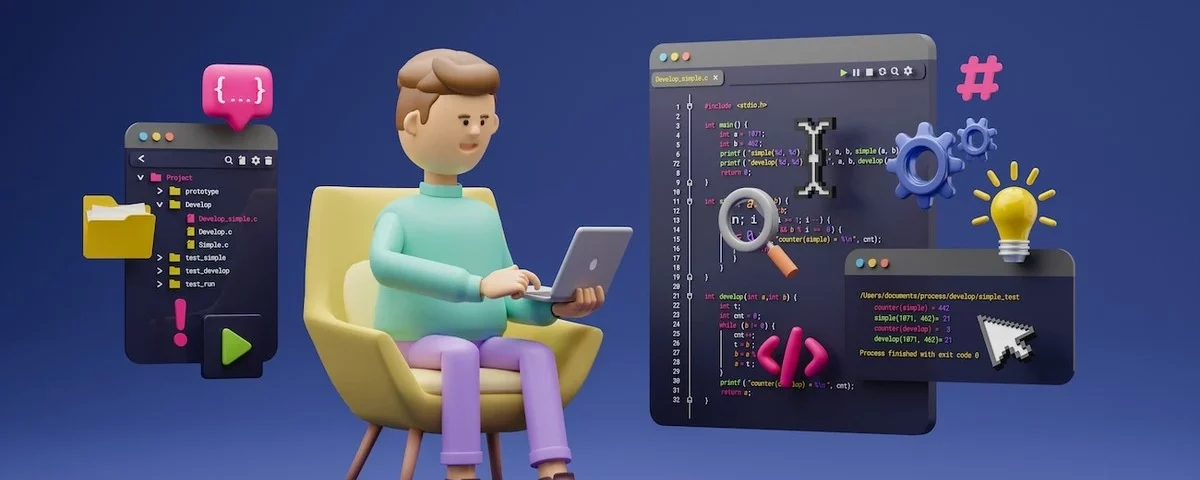
In the vast and ever-expanding programming world, the most valuable asset for programmers is their Integrated Development Environment (IDE). These robust software tools serve as a digital playground, empowering programmers to create, debug, and optimize their code with efficiency. Whether you’re a seasoned developer or just starting your coding journey, having the right IDE at your disposal can make all the difference.
While numerous IDEs are available today, each has unique features and functionalities, it can be overwhelming to navigate this landscape and find the perfect fit for your programming needs.
Fear not, in this blog, we embark on an exciting exploration to uncover the best IDEs that every programmer should know about.
So, buckle up, programmers, as we embark on this adventure together. Get ready to witness the magic unfold as we unveil the best IDEs every programmer should know about, empowering you to transform your coding experience and set new horizons for your programming endeavors.
The Importance of IDEs for Programmers: Unleashing Productivity and Efficiency
In the dynamic world of programming, an Integrated Development Environment (IDE) is much more than a mere software tool. It serves as a programmer’s trusted companion, offering a range of features and functionalities that significantly enhance productivity, efficiency, and code quality.
Let’s delve into the key reasons why IDEs hold such paramount importance for programmers:
Streamlined Workflow: IDEs provide an integrated and cohesive environment where programmers can write, edit, and manage code seamlessly. With syntax highlighting, auto-completion, and intelligent code suggestions, IDEs empower programmers to write code faster and with fewer errors. Additionally, built-in tools for code formatting and refactoring enable developers to maintain clean and standardized code, resulting in improved readability and maintainability.
Debugging Capabilities: Debugging is an integral part of the development process, and IDEs offer powerful debugging tools that simplify the identification and resolution of code issues. With breakpoints, step-by-step execution, and variable inspection, programmers can analyze the flow of their code and identify bugs more efficiently. Visual representations of data structures and real-time error detection facilitate quicker debugging and troubleshooting, saving valuable time and effort.
Code Navigation and Documentation: IDEs provide robust code navigation features that allow programmers to navigate effortlessly through complex codebases. With features like “Go to Definition” and “Find Usages,” developers can quickly locate functions, classes, and variables within their projects. IDEs also integrate well with documentation, providing context-sensitive help and instant access to API references, making it easier for programmers to explore and understand unfamiliar code.
Integration with Version Control Systems: Collaboration and version control are crucial aspects of development. The best software development services in India , Werq Labs offer integration solutions. This integration enables programmers to manage their code repositories, track changes, and collaborate with team members effectively. IDEs often [AS1] provide visual representations of branch histories, conflict resolution tools, and the ability to commit and push code directly from the interface, simplifying the version control workflow.
Enhanced Productivity through Plugins: IDEs often support a wide range of plugins and extensions, enabling programmers to customize their environment and tailor it to their specific needs. These plugins extend the core functionality of the IDE, providing additional features, language support, and integration with third-party tools. From linters and formatters to testing frameworks and building systems, plugins significantly enhance productivity and cater to individual preferences and project requirements.
Integrated Build and Deployment: IDEs often integrate with build tools and deployment frameworks, allowing programmers to compile, build, and deploy their applications seamlessly. This integration automates repetitive tasks, simplifies the build process, and reduces the likelihood of human error. With a few clicks, developers can package their applications, run tests, and deploy them to various environments, saving time and effort in the development lifecycle.
10 Best IDE’s Every Programmer Should Know
The right tools can enhance your coding experience and boost your productivity in programming. Here is a list of the 10 best IDEs that every programmer should know about:
- Visual Studio Code: VSC is a lightweight and versatile IDE developed by Microsoft. It supports a wide range of programming languages, offers powerful code editing features, and has a vast ecosystem of extensions.
- JetBrains IntelliJ IDEA: A powerful IDE for Java development, featuring advanced code analysis, intelligent code completion, and seamless integration with popular frameworks.
- PyCharm: Developed by JetBrains, PyCharm is an excellent IDE for Python programming. It provides code insights, and debugging tools, and supports web development frameworks like Django and Flask.
- Eclipse: A widely-used open-source IDE that supports multiple programming languages, including Java, C++, and Python. Eclipse offers a rich set of features and has strong community backing.
- Xcode: An IDE specifically designed for macOS and iOS development. Xcode provides tools for building, testing, and debugging applications for Apple’s platforms, including Swift and Objective-C.
- Android Studio: The official IDE for Android app development. Android Studio offers a comprehensive suite of tools, including an intelligent code editor, a visual layout editor, and seamless integration with the Android SDK.
- Atom: A highly customizable and open-source IDE created by GitHub. Atom boasts a vibrant community and offers extensive plugin support, allowing programmers to tailor their development environment to their needs.
- Sublime Text: A lightweight and fast IDE with a minimalistic design. Sublime Text provides powerful text editing capabilities, multiple selection support, and a vibrant plugin ecosystem.
- NetBeans: An open-source IDE primarily used for Java development. NetBeans offers a rich set of features, including code generation, version control integration, and support for web development technologies.
- Jupyter Notebook: A web-based IDE widely used for data science and interactive computing. Jupyter Notebook allows programmers to create and share documents containing code, visualizations, and narrative text, making it ideal for exploratory data analysis and prototyping.
These IDEs offer a range of features and cater to different programming languages and domains. Exploring and familiarizing yourself with these IDEs will help you find the perfect fit for your programming needs and empower you to create exceptional software solutions.

A lot of thanks for your entire hard work on this web site. Gloria really loves managing investigations and it’s really easy to see why. Most of us learn all of the compelling form you deliver helpful information on this website and as well encourage contribution from other individuals on that concern while our girl is learning a lot. Enjoy the remaining portion of the year. Your performing a stunning job.